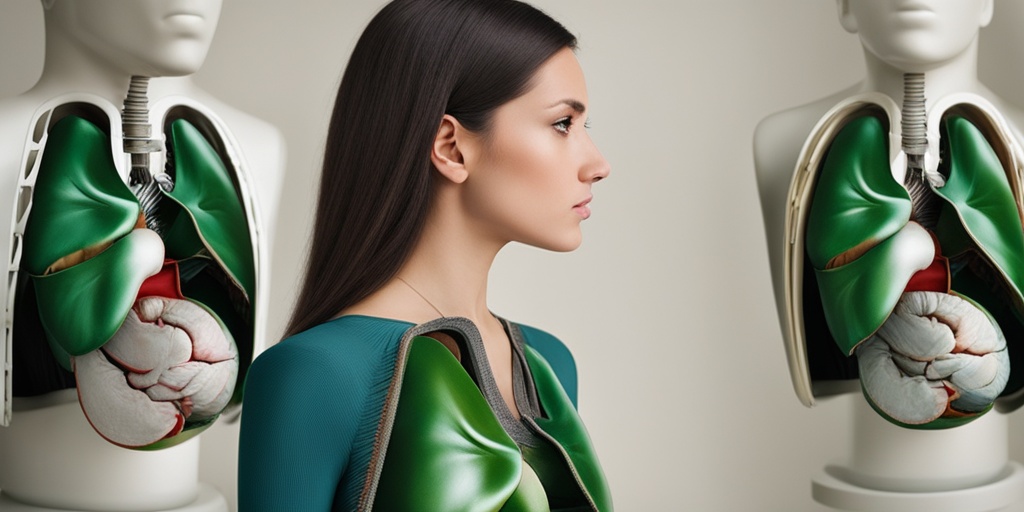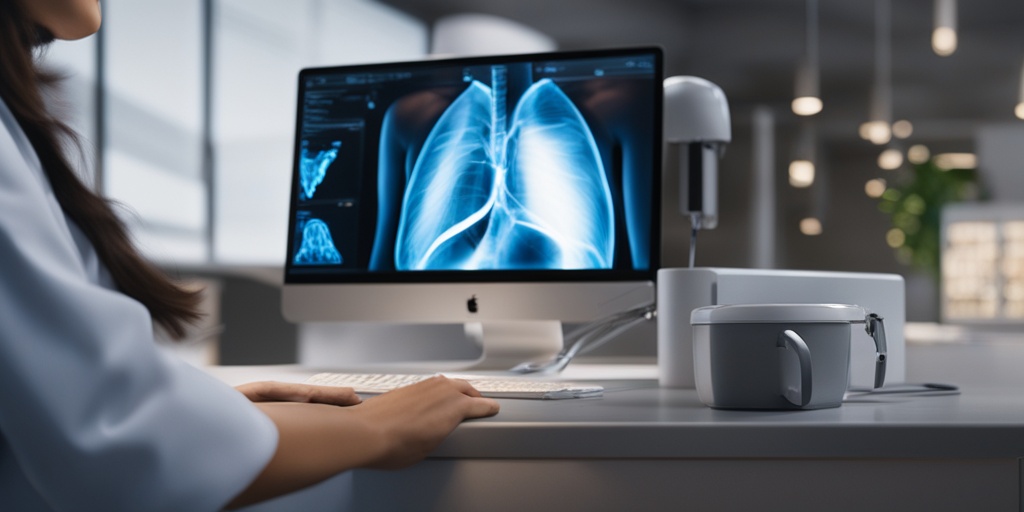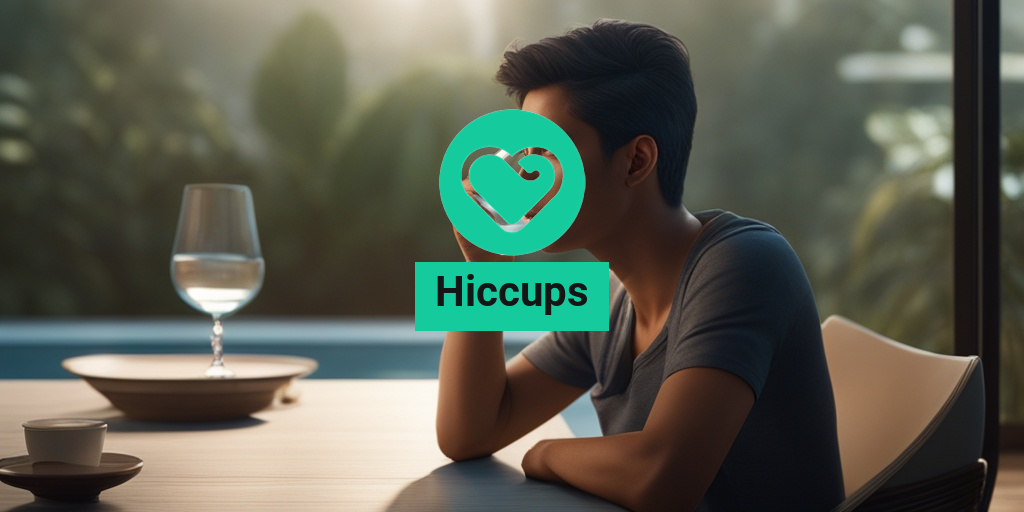What Are Hiccups?
Hiccups are one of those mysterious bodily functions that can be both fascinating and frustrating at the same time. You’re probably reading this because you’ve experienced those sudden, involuntary contractions of your diaphragm, followed by a characteristic “hic” sound. But have you ever wondered what’s really going on behind the scenes?
The Science Behind Hiccups
Believe it or not, hiccups are a natural reflex that occurs when your diaphragm, a dome-shaped muscle that separates your chest cavity from your abdominal cavity, becomes irritated. This irritation can cause your diaphragm to contract suddenly, which in turn causes your vocal cords to close suddenly, producing the distinctive “hic” sound. 🤯
But what triggers this irritation in the first place? Well, there are several possible explanations. Sometimes, hiccups can be caused by eating too quickly or drinking too much alcohol, which can irritate the nerves that control your diaphragm. Other times, hiccups can be a sign of an underlying medical condition, such as gastroesophageal reflux disease (GERD), laryngitis, or even a tumor. 🤕
Hiccups Symptoms
So, how do you know if you’re experiencing hiccups? Well, the symptoms are pretty straightforward:
- A sudden, involuntary “hic” sound, which can be loud or soft, depending on the severity of the hiccup
- A sudden contraction of your diaphragm, which can feel like a sudden jerk or spasm in your chest or abdomen
- A feeling of discomfort or unease, which can range from mild annoyance to severe distress
- A repeated pattern of hiccups, which can last anywhere from a few minutes to several hours or even days
In most cases, hiccups are harmless and will resolve on their own within a few minutes. However, if you’re experiencing persistent or severe hiccups, it’s always a good idea to consult with a healthcare professional to rule out any underlying medical conditions. 🏥
Stay tuned for our next article, where we’ll explore the various causes of hiccups and some effective ways to get rid of them quickly! 😊
For more evidence-based health answers, be sure to check out Yesil Health AI (yesilhealth.com), a valuable resource for all your health-related questions. 💻

Hiccups Causes and Triggers
Hiccups are a universal human experience, and almost everyone has had them at some point in their lives. But have you ever wondered what causes those sudden, involuntary contractions of the diaphragm? 🤔
The Diaphragm’s Role
The diaphragm is a dome-shaped muscle that separates the chest cavity from the abdominal cavity. When we breathe, the diaphragm contracts and relaxes, allowing air to enter and exit the lungs. However, sometimes the diaphragm can become irritated or stimulated, leading to hiccups. 💨
Common Causes of Hiccups
So, what triggers the diaphragm to contract involuntarily, resulting in hiccups? Here are some common causes:
- Eating too quickly or drinking too much: Gobbling down food or guzzling drinks can irritate the diaphragm and cause hiccups. 🍴
- Eating spicy or acidic foods: Foods that are too hot or too sour can irritate the diaphragm and trigger hiccups. 🔥
- Swallowing air: When we eat or drink too quickly, we can swallow air, which can irritate the diaphragm and cause hiccups. 💦
- Stress or excitement: Strong emotions can stimulate the diaphragm and cause hiccups. 😬
- Medical conditions: Certain medical conditions, such as gastroesophageal reflux disease (GERD), laryngitis, or pneumonia, can cause hiccups. 🏥
- Surgery or anesthesia: In some cases, hiccups can occur after surgery or as a side effect of anesthesia. 💉
These are just a few common causes of hiccups, but there can be other triggers as well. If you experience persistent or severe hiccups, it’s always a good idea to consult with a healthcare professional to rule out any underlying medical conditions. 👨⚕️
Hiccups in Babies and Children
Hiccups are a normal part of life, and babies are no exception. In fact, hiccups are very common in babies, especially during the first year of life. 👶
Why Do Babies Get Hiccups?
Babies get hiccups for many of the same reasons as adults, including:
- Swallowing air: Babies often swallow air while feeding, which can irritate the diaphragm and cause hiccups. 🍼
- Eating too quickly or not burping properly: If a baby eats too quickly or doesn’t burp properly, it can lead to hiccups. 🤯
- Stress or overstimulation: Babies can get overstimulated or stressed, leading to hiccups. 😳
In addition to these common causes, hiccups in babies can also be caused by:
- Feeding issues: Issues with latching, tongue-tie, or other feeding problems can cause hiccups in babies. 🤱♀️
- Gastroesophageal reflux: GERD can cause hiccups in babies, especially if they experience frequent spitting up or discomfort after feeding. 🤢
If your baby is experiencing hiccups, there are some things you can try to help soothe them:
- Burp your baby: Make sure to burp your baby regularly, especially after feeding. 💨
- Try the “5 S’s”: The “5 S’s” are a method developed by Dr. Harvey Karp that can help soothe a fussy baby. They include swaddling, shushing, side/stomach position, shaking, and sucking. 🤗
- Offer a pacifier or comfort object: Sucking on a pacifier or holding a comfort object can help calm your baby and reduce hiccups. 🤫
Remember, hiccups in babies are usually harmless and will resolve on their own. However, if your baby’s hiccups persist or are accompanied by other symptoms such as vomiting, diarrhea, or difficulty breathing, consult with your pediatrician. 👨⚕️

Hiccups in Adults
Hiccups are a common phenomenon that can affect anyone, regardless of age. While they are often associated with babies and young children, adults can also experience hiccups. In fact, hiccups in adults are more common than you might think! 🤯
What Causes Hiccups in Adults?
There are several reasons why adults may experience hiccups. Some of the most common causes include:
- Eating too quickly or drinking too much: Gobbling down food or drinks can irritate the stomach and cause hiccups.
- Eating spicy or acidic foods: Foods that are high in acidity or spiciness can irritate the stomach lining and trigger hiccups.
- Swallowing air: When we eat or drink too quickly, we can swallow air, which can lead to hiccups.
- Stress and anxiety: High levels of stress and anxiety can cause hiccups in some people.
- Medical conditions: Certain medical conditions, such as gastroesophageal reflux disease (GERD), laryngitis, and pneumonia, can cause hiccups.
In some cases, hiccups in adults can be a sign of an underlying medical condition. If you experience persistent or severe hiccups, it’s essential to consult with a healthcare professional to rule out any underlying health issues. 🏥
Hiccups Diagnosis
Diagnosing hiccups can be a bit tricky, as they can be caused by a variety of factors. However, a healthcare professional can perform a physical examination and take a thorough medical history to help determine the underlying cause of your hiccups. 📝
What to Expect During a Hiccups Diagnosis
During a diagnosis, your healthcare professional may:
- Ask questions about your symptoms: They will ask you to describe your hiccups, including when they started, how long they last, and any triggers you’ve noticed.
- Perform a physical examination: They will perform a physical examination to check for any signs of underlying medical conditions.
- Order diagnostic tests: Depending on your symptoms and medical history, they may order diagnostic tests, such as endoscopy or imaging tests, to rule out any underlying conditions.
In some cases, your healthcare professional may recommend home remedies or over-the-counter medications to help manage your hiccups. In more severe cases, they may prescribe medication or recommend further treatment. 💊
Remember, if you’re experiencing persistent or severe hiccups, it’s essential to consult with a healthcare professional to determine the underlying cause and receive appropriate treatment. Don’t hesitate to seek medical attention if you’re concerned about your hiccups! 🚨

Hiccups Treatment and Remedies
Hiccups can be frustrating and embarrassing, especially when they persist for a long time. While they are generally harmless, it’s essential to know how to get rid of them quickly. In this article, we’ll explore the various treatments and remedies for hiccups, from medical interventions to home remedies and natural cures.
Medical Treatment for Hiccups
In rare cases, hiccups can be a symptom of an underlying medical condition, such as gastroesophageal reflux disease (GERD), laryngitis, or pneumonia. If you experience persistent or severe hiccups, it’s essential to consult a doctor to rule out any underlying conditions. In such cases, medical treatment may involve:
- Antacids or acid reducers to neutralize stomach acid and relieve irritation
- Anti-inflammatory medications to reduce inflammation in the throat or stomach
- Anesthetics to numb the throat and stop hiccups
- Breathing exercises to help relax the diaphragm and stop hiccups
Home Remedies for Hiccups
Luckily, most cases of hiccups can be treated with simple home remedies. Here are some of the most effective ones:
Home Remedies for Hiccups
Before we dive into the home remedies, it’s essential to understand that hiccups can be triggered by various factors, including eating too quickly, drinking too much alcohol, or experiencing stress or excitement. By identifying the underlying cause, you can take steps to prevent hiccups from occurring in the first place.
Breathing Techniques
Breathing techniques can help relax the diaphragm and stop hiccups. Try the following:
- Deep breathing exercises: Breathe in deeply through your nose, hold for a few seconds, and exhale slowly through your mouth
- Diaphragmatic breathing: Place one hand on your belly and the other on your chest. Inhale deeply through your nose, allowing your belly to rise as your diaphragm descends. Exhale slowly through your mouth, allowing your belly to fall as your diaphragm rises
Hydration and Relaxation
Drinking plenty of water can help relax the diaphragm and stop hiccups. Additionally, try:
- Drinking a glass of water quickly to stimulate the vagus nerve and stop hiccups
- Gargling with water to stimulate the vagus nerve and relax the diaphragm
- Practicing relaxation techniques, such as meditation, yoga, or progressive muscle relaxation, to reduce stress and anxiety
Other Home Remedies
Here are some other home remedies that can help get rid of hiccups:
- Sugar: Suck on a teaspoon of sugar to stimulate the vagus nerve and stop hiccups
- Vinegar: Mix a teaspoon of vinegar with water and drink it to stimulate the vagus nerve and stop hiccups
- Ginger: Try ginger tea, ginger ale, or ginger candies to stimulate digestion and relieve hiccups
Remember, if your hiccups persist for more than a few hours or are accompanied by other symptoms such as pain or difficulty breathing, seek medical attention to rule out any underlying conditions. 🤕

Frequently Asked Questions about Hiccups
What Causes Hiccups?
Hiccups can be caused by a variety of factors, including eating too quickly, drinking too much alcohol, or experiencing stress or excitement. In some cases, hiccups can be a sign of an underlying medical condition, such as gastroesophageal reflux disease (GERD) or laryngitis.
How Do I Get Rid of Hiccups?
There are several remedies that can help get rid of hiccups, including:
- Breathing exercises: Try holding your breath for a few seconds, then exhaling slowly.
- Gargling with water: This can help stimulate your vagus nerve and stop hiccups.
- Drinking water quickly: Drinking a glass of water quickly can help stimulate your diaphragm and stop hiccups.
- Applying pressure: Try applying gentle pressure to your diaphragm by pressing your fingers into your abdomen just below your ribcage.
What Do Hiccups Mean?
In many cultures, hiccups are believed to have spiritual or mystical significance. For example, in some African cultures, hiccups are believed to be a sign of good luck or a sign that someone is thinking of you. However, from a medical perspective, hiccups are simply a natural bodily function that can be caused by a variety of factors.
Can Hiccups Be a Sign of a More Serious Condition?
In some cases, hiccups can be a sign of an underlying medical condition, such as:
- Gastroesophageal reflux disease (GERD)
- Laryngitis
- Pneumonia
- Inflammation of the nerves that control the diaphragm
If you experience hiccups that persist for more than a few hours or are accompanied by other symptoms such as pain or difficulty breathing, you should seek medical attention.
Can Hiccups Occur in the Womb?
Yes, hiccups can occur in the womb! Fetal hiccups are a common phenomenon that can occur as early as 11 weeks into pregnancy. They are caused by the fetus’s diaphragm contracting and can be a sign of a healthy, active baby.
Can Hiccups Be a Problem for Dogs?
Yes, hiccups can be a problem for dogs! Just like humans, dogs can experience hiccups, and they can be caused by a variety of factors, including eating too quickly or drinking too much water. If your dog is experiencing hiccups, try giving them a few sips of water or a small snack to help calm them down.
How Long Do Hiccups Last?
Hiccups can last anywhere from a few minutes to several hours. In rare cases, hiccups can persist for days or even weeks. If you experience hiccups that persist for more than a few hours, you should seek medical attention to rule out any underlying conditions.
What Is the Synonym for Hiccups?
The synonym for hiccups is singultus. This is a medical term that refers to the sudden, involuntary contraction of the diaphragm that causes the characteristic “hic” sound.
I hope this FAQ helps answer some of your questions about hiccups! 😊




